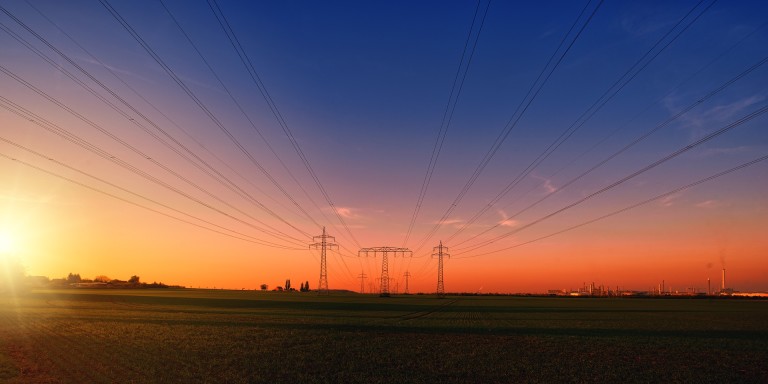Home Warranty > Home Tips For Homeowners
The Power of Choice: Saving Money in Regulated & Deregulated Energy Markets

Imagine living in a home without any electricity. You wouldn’t be able to flick on a light, charge your smartphone, or log onto the Internet. You wouldn’t be able to blend a smoothie, watch TV, or do your laundry. Without electricity, our lives would be completely different. With electricity, we’re able to maintain our expectations of daily living complete with these modern-day luxuries.
Since electricity is “invisible” and most people aren’t sure of where and how electricity arrives at their home—let alone how much electricity costs—throwing in terms about regulated and deregulated energy markets may only power most people down.
What Does Energy Regulation Mean?
A “regulated energy market” refers to the certain rules in place of how consumers receive and pay for their power. Since the 1930s, utility providers have operated on this system. They served their local customers with power. The state determined the rates customers would pay, the utility companies charged their customers, and no one knew any different. Local utility companies were the default option.
Utility companies themselves own the electric transmission lines and the infrastructure they need, like power poles, power lines, and transformers, to get the energy to you. They generate electricity or purchase electricity and sell it to people like you and me. In a regulated energy market, rates are regulated. You have no control over the pricing of the energy you buy. If this sounds familiar, you probably live in a regulated energy market state.
On the other hand, a “deregulated energy market” equals choice. Choice for choosing how you get your power, who you get your power from, what kind of power you get, and what you pay for it.
Deregulation of the energy market is a recent development. Due to the immense amounts of energy required in the modern world for businesses and residential consumers to heat their homes, power their businesses, keep the lights on, charge electronics, run machinery, and operate appliances, the energy industry had to go through a transformation. Slowly, the sale and purchase of power is becoming more and more deregulated.
In a deregulated energy system, utility companies continue to own and maintain the equipment and distribute electricity, but other companies can compete to sell and supply electricity to customers, too.
In a deregulated energy market, consumers are able to select how they want to purchase their gas and electricity; there’s no longer a single utility company people are forced to buy energy from.
With Flexibility Comes Greener, Cleaner Options
With competition comes choice. With choice comes flexibility. And with flexibility comes lower prices and options for consumers to buy the kind of power they’re eager to support. In a deregulated market, consumers are empowered. They can easily compare rates, services, and contract terms and buy energy that best fits what they’re looking for.
Renewable energy, like solar panels, offers consumers a sustainable choice. With energy costs continuing to rise, installing a solar panel can be one form of protection. A solar panel reliably pays for itself, especially when those solar panels create more energy than an individual might personally need. Homeowners can sell excess energy back to the power grid, and this usually turns into a credit on their utility bill.
Investing in solar also raises the property value of a home and qualifies homeowners access to government-based tax saving incentives, up to 30 percent. Using a tool like Green Electricity Quotes is one way to search top solar installers local to you and sift through competing offers.
Is My State Regulated or Deregulated?
Deregulated markets now span 24 states, including California, Texas, and most states in the Northeast. Customers living in these states benefit from more competitive rates and generation options, including renewable energy.
You may already know if your state is regulated or deregulated, but if not explore Electric Choice’s Map of Deregulated Energy States & Markets to determine how your state is represented.
Take note: Not all states are completely regulated or deregulated. California is one such state that toes the line of only being partially regulated. The nature of the grid, history, and geography serve as factors in this partial regulation.
If you live in a regulated state, but are still interested in supporting renewable energy, check with your utility provider to see what utility-owned renewable energy options are available.


